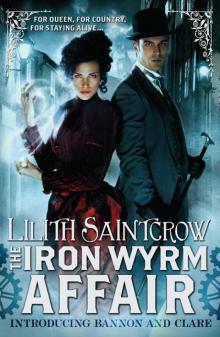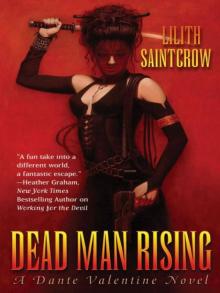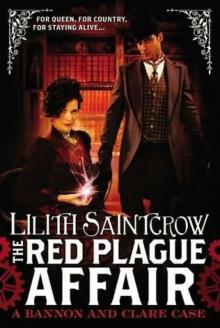- Home
- Lilith Saintcrow
The Hedgewitch Queen
The Hedgewitch Queen Read online
The Hedgewitch Queen
A Romance of Arquitaine
Lilith Saintcrow
www.orbitbooks.net
Begin Reading
Extras
Meet the Author
Bonus Material
Table of Contents
The Hedgwitch Queen
Welcome Page
Dedication
Acknowledgments
Map
The Lady
Chapter One
Chapter Two
Chapter Three
Chapter Four
Chapter Five
Chapter Six
The Captain
Chapter Seven
Chapter Eight
Chapter Nine
Chapter Ten
Chapter Eleven
Chapter Twelve
Chapter Thirteen
Chapter Fourteen
The Bandit
Chapter Fifteen
Chapter Sixteen
Chapter Seventeen
Chapter Eighteen
Chapter Nineteen
Chapter Twenty
The Traveler
Chapter Twenty-One
Chapter Twenty-Two
Chapter Twenty-Three
Chapter Twenty-Four
Chapter Twenty-Five
Chapter Twenty-Six
Chapter Twenty-Seven
Chapter Twenty-Eight
Chapter Twenty-Nine
Chapter Thirty
Chapter Thirty-One
The Queen
Chapter Thirty-Two
Chapter Thirty-Three
Chapter Thirty-Four
Chapter Thirty-Five
Chapter Thirty-Six
Chapter Thirty-Seven
Chapter Thirty-Eight
Chapter Thirty-Nine
Chapter Forty
Glossary
Extras: Meet the Author
Bonus Material: An Excerpt from The Bandit King
Books by Lilith Saintcrow
Orbit
Copyright
For Mel Sanders, with saddles and waterclosets
Acknowledgments
Thanks are due to the usual suspects: Maddy and Nicky for keeping me sane; Miriam Kriss for believing, once again, in the story; Devi Pillai, who was the person I wanted to have it; the long-suffering Jennifer Flax, who is on to bigger and better things; and N.D., for teaching me what a good man will do. Last but not least, as always, thank you, dear Reader. Come, once more, and let me tell you a story.
The Lady
Chapter One
If not for a muddy skirt, I would have been dead like all the rest. Dead—or worse, perhaps.
The green overskirt was attached to one of Lisele’s bodices—an old one, to be sure, but I had remade it prettily enough—and I returned late from the herb gardens that day. There had been a hard rain the previous night; mud daubed my hem and my perfume was hedgewitchery, sweat, and crushed green things. I could not attend Lisele in this state, so I ducked into the kitchen for a slice of bread and a wet rag to work some of the mud off the green velvet before I ran through the corridors to change quickly into a primrose silk. The primrose would set off Lisele’s new pale-green gown, just arrived from the royal dressmakers yesterday, to perfection. She had been absolutely mad with impatience and anticipation.
The kitchen was a-chaos with preparations for the night’s feast, so Head Cook Amys gave me a slice of bread thick with eldrin jam and shooed me away. Fowl chattered in the cages attached to the wall, and a wooden tub full of dazed and writhing eels in well water sat by the cellar stairs.
I allowed myself one nose-wrinkle and a shudder. “Those things?”
Amys, a stout red-cheeked woman in a plain gown and a cap of starched white, laughed. “I know. Yet the King requested, so eels it is.” Her voice belled merrily through the din of the kitchens, and she turned away to scold a hopping scullery boy as Jirisa ducked close to me, setting down her basketful of baguetton on the step.
I smiled a greeting, and Jirisa’s fair round face blushed scarlet. She wiped her hand on her rough woolen skirt and thrust it at me. A soiled bandage flapped against her palm, its ears coming loose.
“D-d-d’mselle—” She was all but speechless with fright. Poor Jirisa was painfully shy, and the distance between her station and mine simply made it worse. In the four years she had been at the Palais I had never heard a complete sentence from her.
“Tis no matter, Jirisa. Let me see.” I set the bread aside, the growling in my stomach protesting, and carefully unwrapped stained cloth from her moist, tender paw. “You should wash the bandages. It may take the rot if you do not.”
“Not with you charming it, d’mselle.” Amys had caught me out, and stood with her fists on her broad hips. Her sleeves, pushed up, showed forearms thick with muscle. “And she should not be disturbing a great lady so. The Duchesse has other things to do with her time, Jirisa.”
“It will make me no earlier nor later to bind this up, Amys.” The slash along Jirisa’s palm was healing nicely, the careful charm I had laid against her skin still pulsing and tingling reassuringly. Instead of a deep muscle-slicing cut, it was now a fragile pink scar.
Satisfied, I dug in my pocket for some antiseptic balm-lemon leaf and crushed it between my fingers, binding the resultant pungent mass against the slice and tying off the bandage. Jirisa snatched her hand back as soon as I finished and bobbed a courtesy, then scooped up her basket and was on her way, her blonde head down as if she were walking against a heavy wind.
“You should not encourage such familiarity.” Amys quite enjoyed sounding scandalized.
You are far more worried with my reputation than is quite proper yourself, m’dama. I rescued my slice of bread and smiled up at her, dabbing at my hem with the damp rag. My emerald eardrops bobbed, swung heavily against my cheeks. “There is some chivin coming in that should flavor the eels nicely.”
She was not to be dissuaded. “Indeed there is, and what is a lady like you doing in the herb garden? Why, you’re all over mud!” She was working up to a fine scolding, those being her way of easing feastday tensions, but she had not the time because one of the undercooks set a butter sauce on fire and I escaped, almost catching my heels on my skirt in my hurry.
Amys had known me when I first came to Court, a provincial girl with a very noble name but no prospects save the income from a small estate in Vintmorecy my father received from the King as payment for me attending the Princesse—necessary, if I was to buy my own dresses. My father had been a gentleman in waiting to King Henri in the days of his youth, when he had been Prince Royal and, later, newly ascended to the throne. I had heard it whispered at home that Father had saved the King’s life once in a Court intrigue, but I never knew the truth of that tale. For that matter, gossip also had it that the King’s father dallied with my grand-dam; I did not know the truth of that, either. King’s bastards swirl among nobility like loose leaves in cheap chai, especially in Arquitaine.
My noble mother died of an attack of fever and left it as her final wish that I be brought up properly at Court. How proper an upbringing one could find at the Court of Arquitaine I cannot guess, having seen my fair share of things that might have driven my poor mother to her grave twice had she known I witnessed them.
Yet Court my mother had wished me to attend, and my father—just before he took the fever himself and stepped into the arms of the Blessed to join my mother—had faithfully packed me off at my ninth birthday with an introduction and a new dress as well as a request for maintenance that the King, being in a gracious mood, granted. And so Duchesse Vianne di Rocancheil et Vintmorecy, at your service, became lady-in-waiting for Princesse Lisele di Tirecian-Trimestin, daughter o
f the King and heir to the throne of Arquitaine.
But that was so far off, we worried over it not a whit. Or at least, Lisele did not.
I climbed up the disused back stairs from the kitchen. As far as I knew, I was the only person of quality who used them, and I took care not to let anyone see me except the servants. They would discover me as a matter of course, so I did not bother. And Duchesse Vianne the hopelessly gawky and mud-splattered, Duchesse Vianne more interested in herbs and books and peasant hedgewitchery than the Court sorcery the rest of the nobles used, was of no account anyway. Nobody marked my comings and goings, and nobody with any sense grudged me my position as honored lady-in-waiting and confidante to the Princesse, quiet intrigue-hunter and scholarly counterweight to Lisele’s frivolity.
Some days I did not envy myself that honor.
Lisele would be working herself into a fit of pique over the dress just about now, and I would have to hurry and leave my hair half braided. Luckily, artfully disheveled hair was the fashion now. If I had not been muttering in the garden seeking to save some of the dying priest’s-ease in the south beds, I would not have been late. Still, I thought the plants would survive now that I had found a charm to keep greentip flies from eating the tender shoots. Twas a good morn’s work, and one that satisfied me a great deal more than the prospect of tonight’s banquet with its stultifying protocol, even if there was sure to be dancing afterward, and a wonder or two of illusion worked.
Court sorcery is all violence and air-and-light illusion, and my interest in the more practical peasant’s magic was, while odd, not entirely improper. It was simply a mark of my provincial upbringing, or a childhood nurse versed in the rustic art.
Though a di Rocancheil has nothing to be shamed of when it comes to blood. My mother’s family is of the oldest and finest nobility, that of the sword; my ancestors rode to war as boon companions of Edouard Angoulême the Merovian, first conquerer of Arquitaine. Twas no small thing to be a di Rocancheil, and my father’s family of Vintmorecy was no less noble. If I chose to waste my time with herbs and healing, twas nobody’s business but mine.
Besides, it was the only area of my life that decidedly pleased me. So much of life is what one can stand; it is a relief to have a small corner be otherwise. Or so I have found.
I let out a small sigh. Another long slow afternoon of reading aloud from romances or doing needlework in frames before the banquet, maybe broken by a maidendance or two. I would be called upon to give a lesson on Tiberian verbs or needled about my hedgewitchery, and Lisele would turn her sharp tongue on whoever needled me.
I often thought Lisele protected me because I was a pet without claws, an ugly girl with no prospects except a noble name and no chance of making a good marriage, since I seemed to have forgotten men existed. Or so twas said. I held my peace, though I longed at times to point out that men were troublesome creatures indeed, and a marriage sometimes worse confinement than the endless round of dresses and dancing. As an unmarried girl I could study Tiberian and hedgewitchery if I wished. As a woman with a Consort, who knew? Then there was the trouble of childrearing, though any hedgewitch can mix a draught to ease that burden before it begins.
Besides, nobles of the sword must seek the King’s leave to marry. I had not yet met the man who might prove worth such an endeavor, noble or no. I had been at Court too long to trust any courtier’s promises, no matter how I might bandy light words and glances.
What else is there, at Court? Empty words, light glances, and being on my guard not merely for myself but for Lisele as well. I loved her, but sometimes I had the utterly disloyal thought that she was not suited for a royal life.
I climbed the stairs and finished the last of the bread and jam, licking my lips and my fingers in a decidedly provincial fashion. I hummed a lately famous tune about the Chivalier Coeurre di Jaronne, skirts and eardrops both swinging merrily, and entered the gallery running alongside the armor hall. I could reach the women’s rooms from there, and—
“And what are you about here?” someone snarled, and there was the sound of a blow.
I stopped dead, the wet rag clenched in my hand. Growing up at Court meant I needed but a single word to place a voice. Yet why would anyone be in this hall? Especially him?
“You cannot prevent it. Tis too late.” A whining, breathless, triumphant sentence.
I recognized that voice, too, and I peered around the corner, the damp rag in my suddenly-hot fingers. I twitched my skirts back without thinking about it—Court had taught me one thing at least: skirts may be seen around a corner when a woman eavesdrops.
I had to peek past a tapestry, and could see two men in the hall.
Baron Simieri and the Captain of the Guard. I winced inwardly. I did not know the Baron well—he was the King’s Minister Primus, born common for all he was granted a title, and he did not participate in much of the dances and fêtes that are the female side of Court life. I had danced with him once, a pavane at Lisele’s Coming-of-Age. His hands had been wet and trembling, and he danced woodenly. None of the ladies-in-waiting liked him, but he was only the Minister Primus, not even a noble. Too busy to court a lady, so we did not have to bear his clumsiness for long if at all.
The other man was…something else. Tristan d’Arcenne. He was tall and serious, always in attendance on the King, overseeing the endless drills and training for the King’s Guard. Quite a few of the Court ladies had left nosegays for him, but to my knowledge he had never shared a pillow with any of them. Court rumor had him painted as the King’s Left Hand and assassin—but, of course, he could not be. If he were, there would be no rumors.
On the other hand, anyone chosen to be the King’s Left Hand would be wise enough—and skilled enough with rumor and innuendo—to divert suspicion away from himself by dropping a choice word in the right quarters. So, there.
The Captain of the Guard had the Minister Primus by the throat, held against the dusty tapestried wall. The Primus, a soft, small man, had always reminded me of an oiled farrat.
D’mselle Maratine had a farrat she trained to beg for sweets. The poor thing did not live long, stuffed to its back teeth with chocolat pettites. A faint flash of nausea went through me. What was happening here?
“The details, Simieri. For my edification, you understand.” Tristan’s voice was low but not cultured at all just now—the accent of a nobleman had turned harsh, with an undercurrent of violence.
I had danced with him twice, once at Lisele’s Coming-of-Age, and again two months ago at the Festival of Skyreturn. D’Arcenne did not dance, and the fact he had done so twice with me caused some comment.
The rumormongers were doomed to disappointment, since he said not a word to me beyond requesting the turn and afterward giving formulaic thanks. He was tall and moved well, his dark hair long as was a chivalier’s fashion now. He had held my hand and watched me oddly during the dance, only occasionally glancing over my shoulder to direct us through the whirling crowd. I was sure I had imagined his hand firmly on my waist but trembling slightly, and his flush when he thanked me afterward. He was a fine figure on horseback, even if rumor did paint him as a bit of a fop.
As well as the Left Hand. Two very contradictory things, indeed.
“Too…late,” Simieri choked. I risked peering a little further around the corner. The tapestry here was red and green, a treatment of the last War of the Rose. A particularly ambitious and awful treatment, I might add. “No…time…”
“Why? Why here?” Tristan shook the Primus and shoved him back against the wall again, and I winced. The small man’s head bounced against stone. “Tell me!”
“Tis…too…late,” Simieri repeated, and a queer rattling noise rose from him.
My nostrils flared. There was a breath of sorcery in the dusty air, of rancid apples and matted fur. My hedgewitch training cataloged the scent, compared it to old treatises, and gave me an answer I did not believe. Apples, and a wet dog. A poison killspell?
But why? Poison kil
lspells had not been used for over a hundred years; their onset was too delayed to fine-tune the effects.
I noticed the passageway I traveled almost every day was disarranged. A small end table of fragrant wood obediently growing thicker with dust now lay smashed on the floor; there was a spatter of something fresh, wet, and red on the bare stone floor. A Ch’min vase lay in pieces, and two of the tapestries were ripped to shreds.
What happened here?
Tristan d’Arcenne stepped back, and Simieri’s body fell limply to the floor. From where I stood I could see the Minister’s face, twisted into a grotesque, plum-colored mask. A thin thread of something dark trickled from his nose, and his eyes puffed shut with the killspell’s swelling.
The Captain of the Guard swore viciously, and I was too shocked to remain silent. I do not know if my gasp was very loud, but it certainly had an effect.
He whirled, and the sound of a blade leaving its sheath stunned me further. He carried a sword by the grace of the King—the Guard was trusted implicitly, and the Captain even more so. The bright length of metal glittered in the hall’s gloom.
It looked very sharp.
Tristan d’Arcenne regarded me over the length of his sword. He was breathing heavily, and so was I. The Minister Primus lay dead on the floor, smashed like the vase and the end table.
No few of the older ladies-in-waiting had succumbed to fever; I had even nursed Lady Atterlina di Herence a year ago until she died. One would have to be blind to avoid seeing death in the world. Yet I had never attended a hanging or a beheading, it being faintly improper for a young noblewoman to see such a thing with the common crowd, and besides I am possessed of a weak stomach. I felt faint each time I saw a duel begin, and usually watched no more than the first exchange of blows.
I could barely even watch a chicken being prepared for the feast. And now, this.
“Vianne di Rocancheil et Vintmorecy.” D’Arcenne’s tone had lost its violence but none of its quiet, as if he reminded himself who I was. And yet, there was something—an accent, perhaps, or simply the way his lips shaped the words—that seemed highly improper.

 Incorruptible
Incorruptible Finder (The Watchers Book 6)
Finder (The Watchers Book 6) Steelflower in Snow
Steelflower in Snow Dante Valentine
Dante Valentine Redemption Alley-Jill Kismet 3
Redemption Alley-Jill Kismet 3 The Iron Wyrm Affair
The Iron Wyrm Affair The Demon's Librarian
The Demon's Librarian The Hedgewitch Queen
The Hedgewitch Queen Redemption Alley
Redemption Alley Flesh Circus
Flesh Circus Saint City Sinners
Saint City Sinners Unfallen
Unfallen Heaven’s Spite
Heaven’s Spite The Devil s Right Hand
The Devil s Right Hand Roadside Magic
Roadside Magic Steelflower at Sea
Steelflower at Sea Agent Gemini
Agent Gemini Blood Call
Blood Call Agent Zero
Agent Zero In The Ruins
In The Ruins Atlanta Bound
Atlanta Bound Hunter, Healer
Hunter, Healer Hunter's Prayer
Hunter's Prayer Roadtrip Z_Season 2_In The Ruins
Roadtrip Z_Season 2_In The Ruins Wasteland King
Wasteland King Pack
Pack Flesh Circus - 4
Flesh Circus - 4 Trailer Park Fae
Trailer Park Fae The Bandit King h-2
The Bandit King h-2 Working for the Devil
Working for the Devil Pocalypse Road
Pocalypse Road Cormorant Run
Cormorant Run Dante Valentine Book 5 - To Hell and Back
Dante Valentine Book 5 - To Hell and Back Desires, Known
Desires, Known Roadtrip Z (Season 3): Pocalypse Road
Roadtrip Z (Season 3): Pocalypse Road Afterwar
Afterwar Selene
Selene The Society
The Society The Hedgewitch Queen h-1
The Hedgewitch Queen h-1 Night Shift jk-1
Night Shift jk-1 Dead Man Rising
Dead Man Rising Dead Man Rising dv-2
Dead Man Rising dv-2 The Iron Wyrm Affair: Bannon and Clare: Book 1
The Iron Wyrm Affair: Bannon and Clare: Book 1 Saint City Sinners dv-4
Saint City Sinners dv-4 Heaven's Spite jk-5
Heaven's Spite jk-5 Beast of Wonder
Beast of Wonder Hunter's Prayer jk-2
Hunter's Prayer jk-2 The Damnation Affair
The Damnation Affair Steelflower
Steelflower The Red Plague Affair: Bannon & Clare: Book Two
The Red Plague Affair: Bannon & Clare: Book Two The Iron Wyrm Affair tb&ca-1
The Iron Wyrm Affair tb&ca-1 Flesh Circus jk-4
Flesh Circus jk-4 Jozzie & Sugar Belle
Jozzie & Sugar Belle Night Shift
Night Shift The Bandit King
The Bandit King![Hunter, Healer [Sequel to The Society] Read online](http://i1.bookreadfree.com/i1/04/05/hunter_healer_[sequel_to_the_society]_preview.jpg) Hunter, Healer [Sequel to The Society]
Hunter, Healer [Sequel to The Society] The Devil's Right Hand dv-3
The Devil's Right Hand dv-3 To Hell and Back dv-5
To Hell and Back dv-5 Angel Town
Angel Town The Red Plague Affair tb&ca-2
The Red Plague Affair tb&ca-2 Redemption Alley jk-3
Redemption Alley jk-3 The Damnation Affair (the bannon & clare affairs)
The Damnation Affair (the bannon & clare affairs) Working for the Devil dv-1
Working for the Devil dv-1